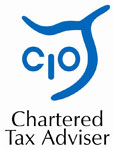Last year there was much huffing and puffing about the so-called “granny tax”, even though nothing had actually happened. What was announced in the 2012 Budget was that age-related allowances would be frozen with effect from April 2013 and would no longer be claimable by anyone born after 5 April 1948. In the meantime the basic personal allowance would be speeded up towards a goal of at least £10,000 and, assuming that it would continue to be index-linked to inflation (by whichever yardstick) it would eventually catch up with the present age-related rates of £10,500 and £10,660 for those born before 6 April 1948 and 6 April 1938 respectively. From then on there will be just one standard personal allowance for everyone (unless you earn more than £100,000.)
Whilst any move towards simplifying our tax system is welcome in principle, these particular changes will have hidden consequences for those pensioners who were careful to be born before the new cut-off dates. In the past their income has generally increased by inflation each year but so has the threshold for becoming a taxpayer. Thus anyone not already a taxpayer was likely to remain so for ever unless they bought the winning lottery ticket. So, they signed R85s for their savings and forgot about tax forever. Now, however, while the allowance threshold remains fixed, their income in all likelihood will rise to meet it and in due course exceed it.
The universal annual increase in the state pension will benefit all pensioners, especially while the “triple lock” is in force (increases in line with inflation, salary rises or 2.5%, whichever is highest). Many pensioners, particularly those with company or public sector pensions, will also receive index-linked rises each year. Some may also have purchased indexed annuities. They could easily be nominally £500 or more better off on paper on 6 April. If their previous year’s income had been perhaps £10,000, they will now have reached or crossed the frozen allowance threshold and become taxpayers again. They must therefore revoke their R85s. Furthermore, they must be aware of the 10% band on savings interest so that they know/remember to reclaim the overpayment next year.
So, within two or three years a lot of pensioners are going to be dragged back into the tax system and will remain there thenceforth when the standard personal allowance equalises and advances at the same rate. These low income fringe taxpayers are also more likely to have to file a tax return when none of their tiny pensions and annuities are big enough to cover the tax due on their total incomes when the state pension is taken into account. We must hope that HMRC’s computers will be on the ball and send them a notice to file in the appropriate year, not three years too late. (We hope too, that the software will also spot those entitled to Married Couples Allowance crossing thresholds and ensure that they only receive half the face value of the MCA on their coding notices instead of the present custom of giving the whole lot if they think the person is not a taxpayer)
To end on a cheerful note, it is good news for charities because it will enable more Gift Aid to be reclaimed on those widows’ mites.
This article is by Tax Help for Older People (operated by registered charity no 1102276), offering free tax advice to older people on incomes below £17,000 a year. The Helpline number is 0845 601 3321 or geographical 01308 488066.
Contact David Crossley
- 102/104 Widnes Road, Widnes, Cheshire, WA8 6AX
- 0151 420 6666
- david@hollandandcompany.co.uk
- Find us on map
- Contact Form
Recent Blog Entries
- 27 Oct 2022Mini-Budget u turn” We are living in one of the strangest periods in history where the Government introduces a n...
- 16 Mar 2022Tax when you sell propertyYou may be liable to pay Capital Gains Tax if you make a profit (‘gain’) when you sell (or...
- 10 Jan 2017Good excuse for being late submitting your tax return ?With the 31 January tax return deadline just around the corner, HMRC has revealed the ‘Top 10 oddest...
Twitter Feed

David K Crossley CTA, ATT
Member of the Chartered Institute of Taxation
